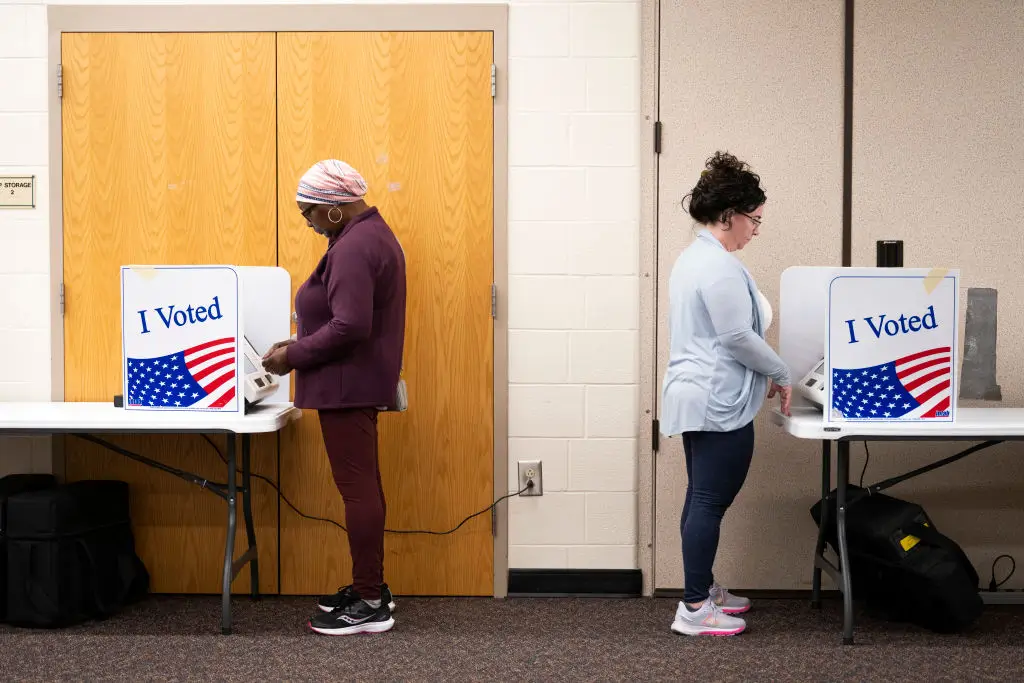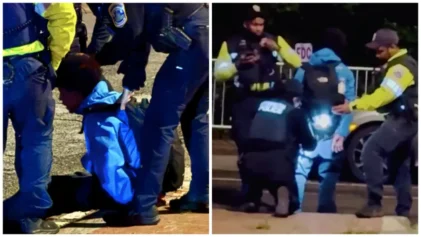In South Carolina, a conundrum has occurred: a federal court has allowed a congressional map that Republicans have drawn to be used in the 2024 elections, despite the court previously deeming it discriminatory against Black voters.
Last year, a three-judge panel struck down a map of South Carolina’s 1st District, represented by GOP incumbent U.S. Rep. Nancy Mace, after judges found that Republicans had impermissibly used race when redrawing the map after the 2020 census. In an effort to solidify Republican control, lawmakers moved 30,000 Black voters from the district into a neighboring one, according to several reports.
The state appealed the earlier ruling, and while the U.S. Supreme Court’s has been slow in resolving the case filed by civil rights groups, the lower court has allowed the same map to be used in this year’s election, which is a major victory for Republicans in the Legislature.

The high court heard oral arguments in the case, Alexander v. South Carolina Conference of the NAACP, on Oct. 11 and seemed poised to allow the GOP map to remain in place, according to reports.
“The Court’s ruling today, further delaying these proceedings, continues to tip the scale of justice during a crucial moment in our democracy in an undemocratic attempt to sway the outcome of the upcoming election,” President of the South Carolina State Conference of the NAACP Brenda Murray said after the ruling. “We must strive for a system where every voice is heard and every vote counts, free from the stain of discrimination.”
The South Carolina ruling echoes similar cases where justices in Southern states like Georgia and Louisiana have allowed congressional maps that dilute Black voters’ rights and other people of color.
The story has caused a stir among some South Carolina citizens expressing outrage over the court’s decision to allow a map that threatens the rights of Black voters. As the 2024 elections approach, there has been rising tension in South Carolina.
The issues surrounding discriminatory maps serve as a stark reminder of the ongoing struggle for fair representation in the United States. It has prompted civil rights groups to continue to seek justice for Black voters’ rights.
Leah Aden, a lawyer with the NAACP Legal Defense Fund, argued the case last year. “A second election under an infirm map is justice delayed when plaintiffs have made every effort to get a decision and remedy before another election under a map that denies them their rights,” Aden said in a statement. “As with any civil rights struggle, we will be unrelenting in our fight for our constitutional rights.”
While South Carolina has appealed, the Supreme Court has been asked to expedite the case to ensure a final ruling was in place well ahead of the elections, the Washington Post reported. A majority of the justices signaled they were inclined to permit the state to use the map drawn by lawmakers at the time.
The decision noted that courts usually don’t allow maps to be used once they have been found to be invalid. “But with the primary election procedures rapidly approaching, the appeal before the Supreme Court still pending, and no remedial plan in place, the ideal must bend to the practical,” the judges wrote.
Another contested district map in Utah is pending with the state Supreme Court, Mark Gaber of the Campaign Legal Center told ProPublica. Gaber, whose work involves representing plaintiffs in a partisan gerrymandering lawsuit, said the court will unlikely resolve it before the elections.
“The long, extended delays are a real problem, for voting rights and particularly for Black voters,” Gaber told the outlet.
The justices are expected to issue their decision in the initial appeal by the end of June, potentially allowing a new map in the state in time for the 2026 congressional elections, Roll Call reported.


